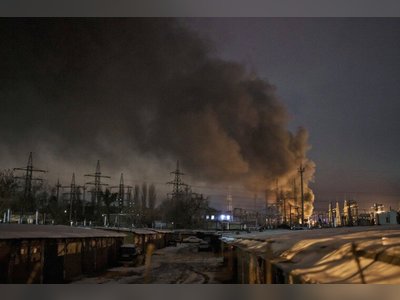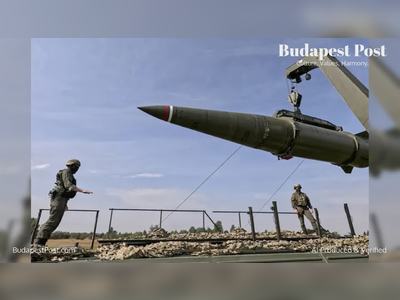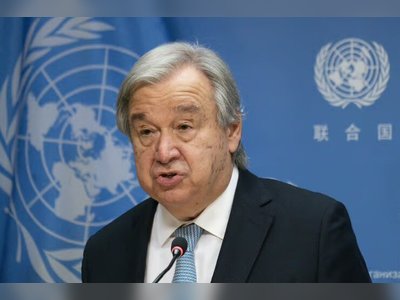Financial Woes Force SCM Gloria Buzău to Withdraw from Romanian Handball Championship
The club's decision impacts players including European Championship medalists amid funding reallocations by local authorities.
In a surprising turn of events, the Romanian handball team, SCM Gloria Buzău, has withdrawn from both the senior league and junior divisions due to severe financial difficulties.
This decision, announced on the club’s social media channels, affects prominent athletes such as European Championship bronze medalist Papp Nikoletta and junior European champion Pál Tamara.
The decision followed an in-depth consideration by the board of directors.
SCM Gloria, positioned 11th out of 14 teams in the Romanian top league after 13 rounds, was heavily reliant on municipal funding; a common situation among clubs in the league.
The club’s annual budget stood at approximately €7 million, with the women’s handball division reportedly receiving about €2 million, according to the Bucharest-based publication, Nemzeti Sport.
Moving forward, the club will focus solely on youth team development.
Bucharest's sports portal, Gazeta Sporturilor, attributed this decision to Buzău's mayor, Constantin Toma.
Recently re-elected, Toma plans to reallocate these resources to support the football team languishing at the bottom of the local Superliga.
Toma perceives the handball team’s performance in the 2020-2023 European League as disappointing while the football team’s return to the top division last year after an 18-year absence is seen as a more promising narrative.
In conjunction with their withdrawal announcement, SCM Gloria Buzău also stated that they would refund ticket holders for the six remaining home matches.
With this withdrawal, SCM Gloria's players are now free agents.
Among them, Romanian internationals Daria Bucur and Stefania Jipa, who participated in the European Championship in Debrecen, appear to have secure futures as they are expected to join Bistrița, under the guidance of coach Florentin Pera.
Bucur has already signed with the Transylvanian club, which competes in the Champions League.
This reallocation of funding reflects broader economic challenges within Romanian sports, where municipal budgets often dictate the viability of professional teams, raising questions about sustainability and the future of sports prioritization at the local government level.
This decision, announced on the club’s social media channels, affects prominent athletes such as European Championship bronze medalist Papp Nikoletta and junior European champion Pál Tamara.
The decision followed an in-depth consideration by the board of directors.
SCM Gloria, positioned 11th out of 14 teams in the Romanian top league after 13 rounds, was heavily reliant on municipal funding; a common situation among clubs in the league.
The club’s annual budget stood at approximately €7 million, with the women’s handball division reportedly receiving about €2 million, according to the Bucharest-based publication, Nemzeti Sport.
Moving forward, the club will focus solely on youth team development.
Bucharest's sports portal, Gazeta Sporturilor, attributed this decision to Buzău's mayor, Constantin Toma.
Recently re-elected, Toma plans to reallocate these resources to support the football team languishing at the bottom of the local Superliga.
Toma perceives the handball team’s performance in the 2020-2023 European League as disappointing while the football team’s return to the top division last year after an 18-year absence is seen as a more promising narrative.
In conjunction with their withdrawal announcement, SCM Gloria Buzău also stated that they would refund ticket holders for the six remaining home matches.
With this withdrawal, SCM Gloria's players are now free agents.
Among them, Romanian internationals Daria Bucur and Stefania Jipa, who participated in the European Championship in Debrecen, appear to have secure futures as they are expected to join Bistrița, under the guidance of coach Florentin Pera.
Bucur has already signed with the Transylvanian club, which competes in the Champions League.
This reallocation of funding reflects broader economic challenges within Romanian sports, where municipal budgets often dictate the viability of professional teams, raising questions about sustainability and the future of sports prioritization at the local government level.
AI Disclaimer: An advanced artificial intelligence (AI) system generated the content of this page on its own. This innovative technology conducts extensive research from a variety of reliable sources, performs rigorous fact-checking and verification, cleans up and balances biased or manipulated content, and presents a minimal factual summary that is just enough yet essential for you to function as an informed and educated citizen. Please keep in mind, however, that this system is an evolving technology, and as a result, the article may contain accidental inaccuracies or errors. We urge you to help us improve our site by reporting any inaccuracies you find using the "Contact Us" link at the bottom of this page. Your helpful feedback helps us improve our system and deliver more precise content. When you find an article of interest here, please look for the full and extensive coverage of this topic in traditional news sources, as they are written by professional journalists that we try to support, not replace. We appreciate your understanding and assistance.











